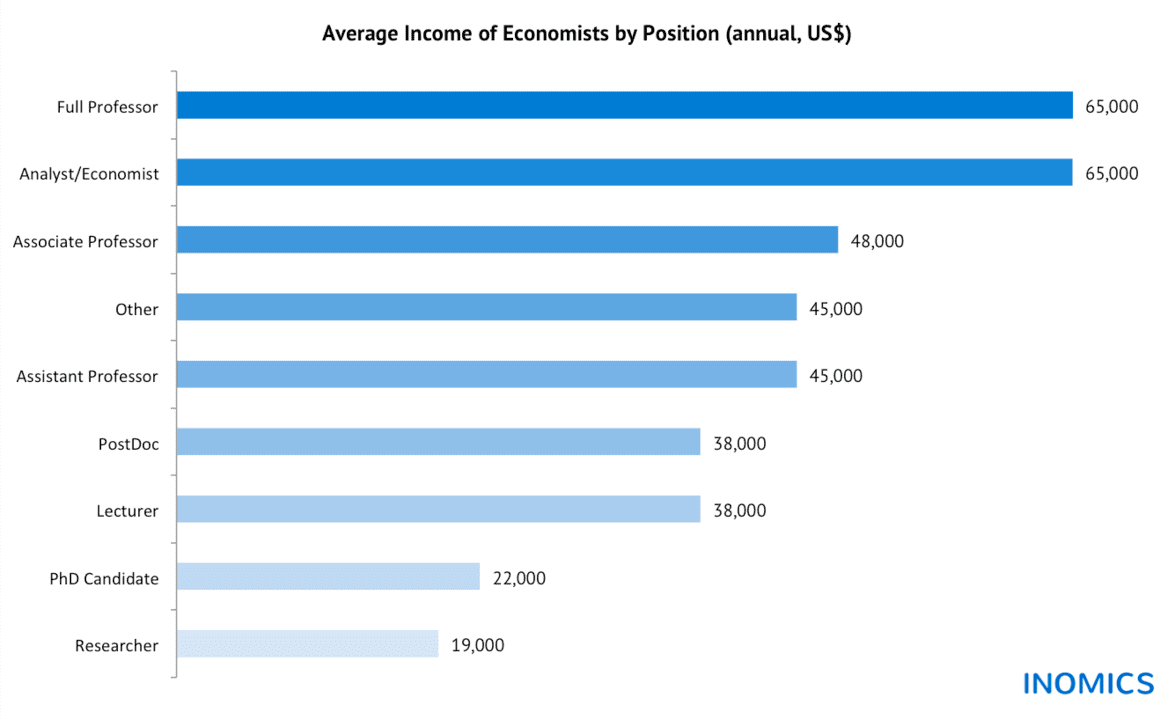
Salaries of Spanish Economists in the Crisis
Read a summary or generate practice questions using the INOMICS AI tool
Despite the uncertain outlook for the labour market in the Iberian region, the percentage of foreigners working or studying in Spanish institutions is higher than in other countries like Germany or United Kingdom (for more information access reports from other regions here). Many of these economists study or work at one of the numerous highly ranked institutions found in Spain, such as the Barcelona Graduate School of Economics or the University of Barcelona.
In fact, around 78% of economists in Spain are foreigners. The top reasons they cite for seeking employment in the Iberian country flexible working hours, balance between work and personal life and opportunities for development of their own research studies. Despite being highly relevant factors, their qualitative nature leaves out points of a more quantitative nature, such as salary.
Seemingly, despite the economic crisis, Spain continues to attract foreign economists. Given the importance of wages in making choices about professional life, we decided to present the average income of economists in Spain, according to their positions.
Compared with other European countries, the level of wages of Spanish economists is low. Around 80% of the employed economist population earns less than $55,000 a year; however this data is based on studies with a sample of mostly young economists with limited advanced studies and work experience. Moreover, as is clear from the graph, positions of full professor and analyst/economist are well paid in the Iberian country, while researchers and PhD candidates do not receive high salaries (more information available in the full Spanish report here)
In Spain, work experience and professional education have a strong impact on salary. Citing an example, the income of highly skilled and experienced analysts/economists reflect those of their colleagues in countries like Germany and UK. Based on this observation, and according to other information sources, the situation in the Eurozone particularly affects young professionals in the region, while senior economists find in Mediterranean climates more pleasant working conditions with similar incomes to their countries of origin.
-
- Online Course
- (Online)
- Posted 4 years ago
Political Economy Certificate
at University of Massachusetts Amherst in United States -
- Conference
- Posted 7 months ago
2nd world Conference on Data Science & Statistics (Data Science Week 2024)
Between 17 Jun and 19 Jun in Amsterdam, Netherlands -
- Online Course
- (Online)
- Posted 3 years ago
Principles of Economics
at Stanford University in United States











